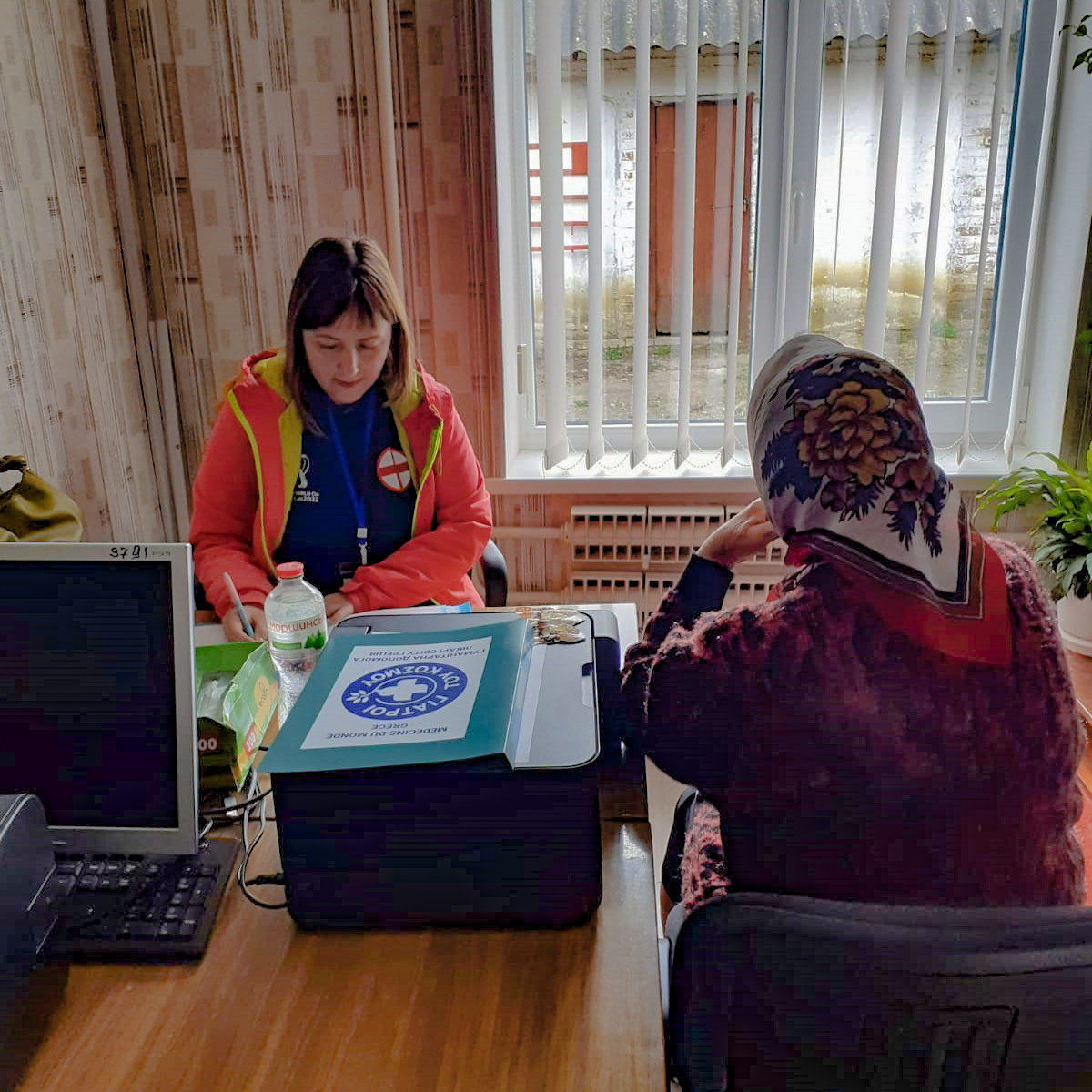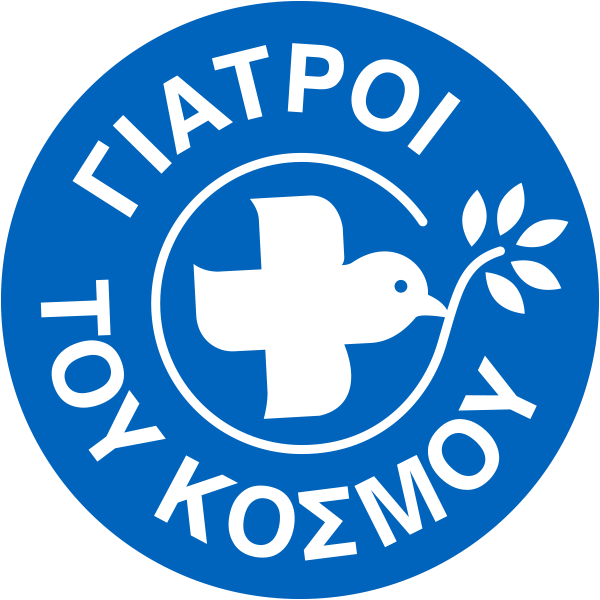Mental Health and Psychological Support Operation
Ukraine has a 30.6 suicide rate, that is slightly higher than the Eastern Europe regional average (29.6 deaths per 100,000 population) and the global average (10.4 deaths per 100,000 population) (WHO & University of Washington, 2021). This context has significant negative mental health impacts on children and the adults surrounding them. Among those who are particularly affected are veterans, their families and parents, children, the elderly, and people with disabilities (Bandura & Reynal, 2023), all of whom require varying degrees of care and treatment.
The existing healthcare system, inherited from the Soviet era, still lacks efficiency and centralizes hospital-based care over preventive and holistic approaches. Reforms initiated by the Ministry of Health to integrate mental health services in primary healthcare and in community-based settings face challenges, including stigma, lack of recognition of distress signs, limited awareness of available support, insufficient evidence-based training and damaged infrastructure. Despite the rising demand for mental health services, significant obstacles remain for accessing care by affected populations.
Ukraine has a Concept for Development of Mental Health Care in Ukraine until 2030. This is based on principles of accessibility, thoroughness, comprehensiveness, multi-disciplinary approach, continuity and human rights. The plan is in alignment with the WHO Comprehensive Mental Health Action Plan 2013-2030. Key components are de-institutionalization, decentralization and integration of mental health into Primary Care. According to the WHO’s Mental Health Atlas (2020) there are 15.104 mental health professionals in Ukraine, or 34 mental health workers per 100,000 population (WHO, 2017).
The ongoing operations of MdM-Greece are dictated by field experience and needs assessment, and aim both to meet the critical needs created by the war and to address long-standing deficiencies and dysfunctions of local health institutions, which are now struggling even more to cope with pre-existing, new and growing needs of the suffering Ukrainian people.
More specifically, the pilot project “Fill in the MHPSS Gap” that was implemented by MdM-Greece with the support of the World Bank, in cooperation with the national and local governments and other CBOs in Chernivtsi, Sumy and Odesa Oblasts aimed at creating and evaluating the impact that a scalable, low-cost MHPSS services can have on key populations such as women, children, the elderly, chronic patients, ex-combatants, etc. as well as addressing the complementary relationship between important players to reduce unnecessary competition and gaps that hinder collaboration while increasing synergies and multiplier results.


WHEREVER PEOPLE ARE WHEREVER PEOPLE ARE WHEREVER PEOPLE ARE WHEREVER PEOPLE ARE WHEREVER PEOPLE ARE WHEREVER PEOPLE ARE WHEREVER PEOPLE ARE WHEREVER PEOPLE AREWHEREVER PEOPLE ARE WHEREVER PEOPLE ARE WHEREVER PEOPLE ARE WHEREVER PEOPLE ARE WHEREVER PEOPLE ARE WHEREVER PEOPLE ARE WHEREVER PEOPLE ARE WHEREVER PEOPLE ARE
Fill the MHPSS Gap Project and MdM-Greece Community Assessment
DISCLAIMER: The community assessment was conducted within the framework of “Fill in the MHPSS Gap” project, implemented by MdM-Greece between May- December 2023, with the financial support of the World Bank.
Fill the MHPSS Gap Project and MdM-Greece Community Assessment
DISCLAIMER: The community assessment was conducted within the framework of “Fill in the MHPSS Gap” project, implemented by MdM-Greece between May- December 2023, with the financial support of the World Bank.
Within the framework of its pilot project “Fill in the MHPSS Gap” funded by World Bank, MdM-Greece conducted a community assessment exercise in Chernivtsi, Sumy and Odesa Oblasts, using mixed -qualitative and quantitative- methods from May to September 2023.
Within the framework of its pilot project “Fill in the MHPSS Gap” funded by World Bank, MdM-Greece conducted a community assessment exercise in Chernivtsi, Sumy and Odesa Oblasts, using mixed -qualitative and quantitative- methods from May to September 2023.
QUANTITATIVE SURVEY
MdM-Greece undertook a quantitative survey using the WHO/UK ‘Perceived needs instrument’ called the HESPER (Humanitarian Emergency Settings Perceived Needs Scale) (WHO, 2011) to find out HOW to provide help with qualitative methods after finding out WHAT are the local needs.
MdM-Greece team used a multistage sampling technique by randomly sampling 20% of the hromadas (of the approximately 40-60 hromadas per oblast). Per hromada the project sampled 20-30 respondents across both genders and different age groups.
For each question people were responding using 4 options: “important for me”, “not important for me”, “doesn’t know” and “not applicable”.
QUALITATIVE SURVEY
MdM-Greece performed a total of 29 KIIs and 15 FGDs in Chernivtsi and Sumy Oblasts.
The aim of the key informants’ interviews (KIIs) was to identify problems that individuals and communities/hromadas are confronted with and how they cope with and manage these problems. The interview’s guide comprised of thirteen (13) main topics. Key Informants were not asked to communicate about personal distress or problems, but share experiences, discuss perspectives and communicate more in-depth opinions and views. Key Informants were selected so as to convey different and divergent ideas on the topics.
The aim of the Focus Group Discussions (FGDs) was to identify problems that individuals and communities are confronted with and the ways they cope with and manage these problems. Fifteen (15) FGDs with a total of 59 participants were conducted. The FDG probes were prepared by MdM-Greece
MHPSS experts (Dr Joop De Jong and Dr Volodymyr Korostyi) with the support of MdM-Greece Senior Programmes and Advocacy Coordinator. The Field Coordinators of MdM-Greece in Chernivtsi and Sumy organized and moderated the discussions with the support of MdM-Greece administrative and project staff and the MdM-Greece Head of Mission.
The discussion for each type of group was limited to 3-4 major themes. FG members were not asked to share their personal distress or problems, rather discuss together their views and perspectives of their communal life. FDGs were designed following Diversity – Equity – Inclusion / DEI principles.
DATA COLLECTION
MdM-Greece collected data at the level of the government, the region (oblast) and the local community level (hromada). This process helped towards identifying gaps in knowledge and expertise among the medical, the educational and the psychosocial staff in the country.
A critical review of the scientific and grey literature also took place to enhance knowledge and identify the major problems among service providers and service recipients.
CONCLUSION
Being citizens of a European, developed country, responders didn’t rank basic emergency needs as food and shelter as high priorities with the sole exception of drinking water, something that manifests the fear caused by war and it is perhaps also associated with relevant attacks, like the destruction of Kakhovka Dam that took place on June 2023.
It is worth noting that while “Distress” is highlighted by a wide percentage as a main concern, “Physical health” is still considered as more important than “Mental health” by most of the responders. As however, “Healthcare” holds an important role for Ukrainians while “Care for family members” and “Care for people in community who are on their own” also sum up significant percentages, it is rational to assume that the acknowledgement of importance that mental health support and treatment holds for Ukrainian citizens is also on the rise.
The destruction of homes and livelihoods, shelling, severe injury and death, the continued separation and worries about loved ones and the daily stress of a fragile living situation and an unknown future are the leading causes of mental distress for most Ukrainians, our KIIs and FGDs revealed. The existing mental health services are inadequate or non-existent in rural and remote areas, such as the rural hromadas of Sumy. In addition, local health systems are overburdened and are not able to meet psychological needs combined with more chronic health problems. Community-based settings face challenges, including stigma, lack of recognizing signs of distress, limited awareness of available support, insufficient evidence-based training, and damaged infrastructure. Despite the rising demand for mental health services, significant obstacles remain for accessing care by affected populations, according to key informants and members of the FGDs.
The Ukrainian health care sector’s inherited inefficiencies, bureaucratic hurdles, a lack of emphasis on prevention and public health, as well as disparities in access to quality healthcare services, particularly disadvantage rural and underserved populations.
Vulnerable subgroups such as disabled individuals, chronic patients, internally displaced people (IDPs), women and people exposed to war-related trauma are especially prone to not receive the care they require. The problem is further exacerbated by the negative impact it has on peoples’ capacity to remain active in social and economic life. In turn, people feel increasingly depressed.
Key Informants and FGDs members reported that young people – while transitioning through significant physical, emotional, and social changes – are at a higher risk to resort to harmful coping mechanisms and behaviors when struggling with mental health issues such as anxiety and depression.
Stigma, discrimination and social marginalization, in parallel with human rights violations have led to elevated rates of emotional distress and mental health conditions. Community stakeholders and people questioned, emphasized that by coping better, youth and adults are more likely to reintegrate themselves into economic life: for example, by finding work or enrolling in (vocational) training courses. Such examples were mentioned during our discussions with community members. While the project didn’t include provisions for following up relevant developments, MdM-Greece integrates this perspective into its work by striving to create self-help groups between health staff at hospital’s and communities’ level.
Help-seeking for mental health issues in Ukraine is impeded because signs of distress and mental health concerns are not recognized as such, or relevant support services are not known, our community assessment revealed. Most importantly, help-seeking is most prominently discouraged by the omnipresence of mental health stigmatization. While Ukrainians empathize with people with mental health issues, those struggling with mental health disorders are often socially marginalized and believed to be needing similar levels of control and discipline as young children.
Mental health is also stigmatized within the health sector. Mental health issues are rarely addressed during primary care workers’ medical training, contributing to the somatic interpretation and treatment of psychosocial issues. It also results in referring people with mental health issues to specialized psychiatric institutions (rather than tailored, lower level support interventions). As a result, there are human rights issues and challenges around people with mental disorders who are housed in long-term treatment facilities. Practitioners – such as facilitators of mental-health programs – often hold implicit or explicit prejudices against the people they are meant to support, which influences the way people are feeling and treated. This testifies to the pervasiveness of misunderstandings surrounding mental health, its interconnection with physical health, and its underlying social and environmental drivers.


